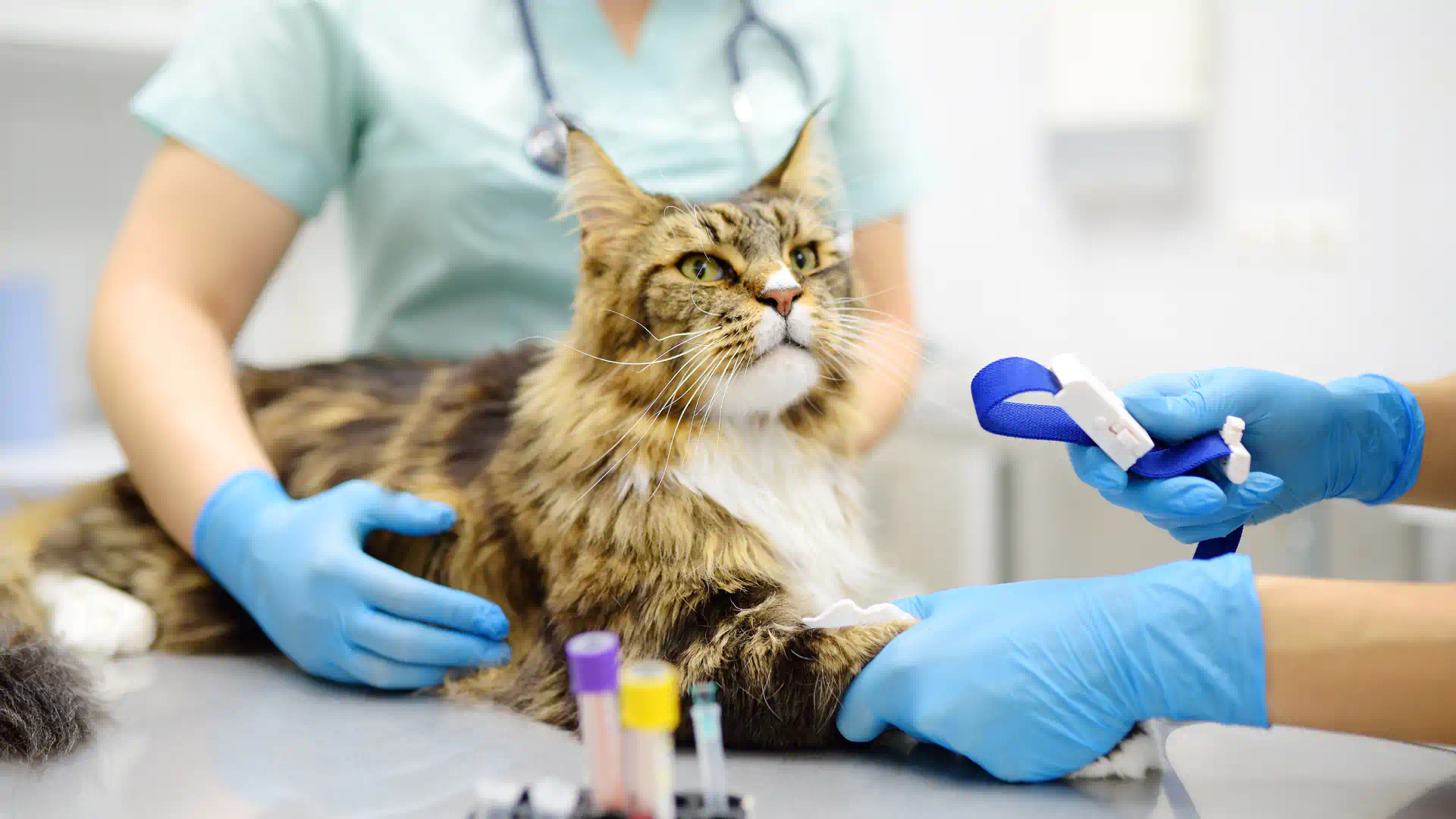What Are Routine Blood Tests?
Routine blood tests analyze your pet’s blood to assess their general health and identify potential medical concerns. Common types of blood tests include:
- Complete Blood Count (CBC):
Evaluates red and white blood cells and platelets, offering insights into: - Blood Chemistry Panel:
Measures various substances in the blood to assess organ function and metabolic health: - Electrolyte Tests:
Helps monitor hydration and detect imbalances linked to illnesses like kidney disease or diabetes. - Thyroid Tests:
Checks thyroid hormone levels to diagnose conditions like hypothyroidism in dogs or hyperthyroidism in cats.
Why Are Routine Blood Tests Important?
Blood tests are a critical part of preventive care and can:
- Detect Hidden Health Problems:
Many illnesses, such as kidney or liver disease, show no symptoms until they are advanced. Blood tests can catch these issues early. - Monitor Chronic Conditions:
For pets with ongoing health issues like diabetes or kidney disease, blood tests help track disease progression and treatment effectiveness. - Establish Baselines:
Regular testing creates a baseline of your pet’s normal values, making it easier to detect changes over time.
When Should Your Pet Have Routine Blood Tests?
Routine blood tests are recommended in several scenarios:
- Annual Check-Ups:
Routine testing is part of preventive care, particularly for middle-aged and senior pets. - Pre-Surgery:
Blood tests ensure your pet is healthy enough for anesthesia and surgery. - Showing Symptoms:
If your pet has unexplained symptoms like lethargy, loss of appetite, or vomiting, blood tests can help identify the cause. - Chronic Conditions:
Pets with diabetes, kidney disease, or other chronic illnesses require regular monitoring. - New Medications:
Blood tests are often recommended before starting or during treatment with medications that can affect the liver or kidneys.
What Do Routine Blood Tests Reveal?
Routine blood tests provide a wealth of information about your pet’s health, including:
- Organ Function:
Detects early signs of kidney, liver, or pancreatic disease. - Infections or Inflammation:
High white blood cell counts indicate infections or inflammation. - Anemia or Clotting Issues:
Low red blood cell counts or platelet abnormalities signal anemia or bleeding disorders. - Hydration Levels:
Electrolyte tests reveal dehydration or imbalances. - Metabolic Health:
Monitors glucose levels for diabetes and protein levels for overall nutrition.
How to Prepare for a Blood Test
Blood tests are simple and minimally invasive. Here’s how you can prepare your pet:
- Follow Fasting Instructions:
Your vet may ask you to withhold food for 8–12 hours before testing to ensure accurate results. - Keep Your Pet Calm:
Stress can sometimes affect certain blood test results, so keeping your pet relaxed is helpful.
What Happens After the Blood Test?
Once the test is complete, your veterinarian will review the results and explain any abnormalities. Depending on the findings, further diagnostic tests or treatment plans may be recommended.
Conclusion
Routine blood tests are an invaluable tool for maintaining your pet’s health. They help detect hidden conditions early, monitor chronic illnesses, and provide essential data for preventive care. Regular testing ensures that your pet receives timely treatment, helping them live a longer, healthier life.
Talk to your veterinarian about incorporating routine blood tests into your pet’s health care plan, especially as they age or if they have existing health concerns.






